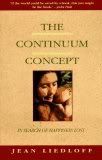I have mixed feelings about this whole aging thing. As a female friend of like age put it, anything 20-something sounds better than anything 30-something. It's a cultural construct, I realize, and perhaps it hits women harder than men (witness my friend's and my husband's insouciance but my ambivalence). I find myself perusing the faces of actors and actresses -- "Don't you think she looks the same age as I do?" I'll ask Sam. "She's actually three years younger." I've become a troll of imdb.com and wikipedia as I search automatically for the birth years of anyone I see on screen. I'll cringe when someone I think looks old turns out to be my age, and I'll cheer when someone I think looks gorgeous and flawless turns out to be a few years down the road. I'll analyze why someone might have crow's feet at my age -- "Well, she tanned a lot," or "He was a smoker." I'll wonder and wish I knew the secrets when someone seems preternaturally youthful (Courtney Cox, anyone?).
So all this is why a particular passage from The Continuum Concept: In Search Of Happiness Lost really hit me with longing to live more comfortably in my own (aging) skin:

"Living as one is evolved to do, one's history is very different. Babyhood desires give way to those of the successive phases of childhood and each fulfilled set of desires gives way to the next. The desire to play games fades away, the desire to work becomes increasingly strong as one becomes an adult, desire to find and share life with an attractive member of the opposite sex, fulfilled, gives rise to a desire to work for the mate and to have children together. Maternal and paternal motive develop toward the children. The need to socialize with one's similars is fulfilled from childhood to death. As the needs of adults in their prime to initiate and carry through their projects becomes fulfilled and age begins to reduce physical powers, desires are for seeing one's loved ones succeed, for peace, for less variety in experiences, to feel that things are moving through the cycle of life with less help from oneself, and ultimately, with no help, as the last of life's succession of desires is fulfilled and is replaced by none but the wish to rest, to know no more, to cease.
"In every phase, founded firmly upon the completion of the preceding ones, the stimulus of desire receives its full response. There is, therefore, no genuine advantage in being young over being old. Each time has its particular joys, and after one has relinquished each set of desires as it runs its course, there can be no cause to envy the young, nor to wish for any age other than one's own and the pleasures it brings with it, up to and including death." (p. 148 in my copy)
Sam & I went to a documentary a few years ago called The Same River Twice
One of my favorite parts of the movie comes when the filmmaker asks a man if he envies today's youth and misses his own past. "No," he said, and I'm paraphrasing like crazy here, "I got to be 28 once, and now it's their turn." I thought it was so confident and contented, much like the continuum peoples Jean Liedloff describes above: If you're happy with each phase of your life as you experience it fully, then you'll be happy to graduate to the next phase without looking back, not resenting those who are now getting their chance at an earlier phase and not looking ahead jealously to those guarding the next.
Sam & I had a long talk about this last night, since I was musing on writing this post, and he talked about how unformed we look in photographs taken of us at 20, 23, 25. It's not till around 28 that we got it together and look, in his words, competent. And it's that competence that has given us the ability to be confident and more attractive -- not in appearance but in the sense of attracting relationships with and admiration from others. Certainly I would not have been the same mother I am today if I had had my baby at 25, and I appreciate taking the time I needed to get to this place. He suggested that we get a few more years, then, to continue maturing, since maybe it took us longer than others. It seems that it has been experiences that made us grow up rather than just birthdays.
I like that idea of a grace period, and of age not being a straight line from past to future but a fluidity that embraces what and how you're learning from one year to the next. This year maybe I'll grow up quite a lot, or I could choose to let myself rest.
I've noticed, too, that this first year with Mikko has slowed down time to how it used to be when I was in school. After graduating, years flew with no discernible breaks for semesters and vacations, and five could go past without blinking. I want to learn to enjoy my own age for what it is so I can enjoy Mikko's for his, and so I can look forward to continuing to get older. Because, after all, what's the alternative?
(Answer: Drinking the blood of unicorns like Courtney Cox. You heard it here first, folks.)









 I'm Lauren Wayne, writer and natural parent. I embrace attached parenting with an emphasis toward green living.
I'm Lauren Wayne, writer and natural parent. I embrace attached parenting with an emphasis toward green living. 


0 comments:
Post a Comment